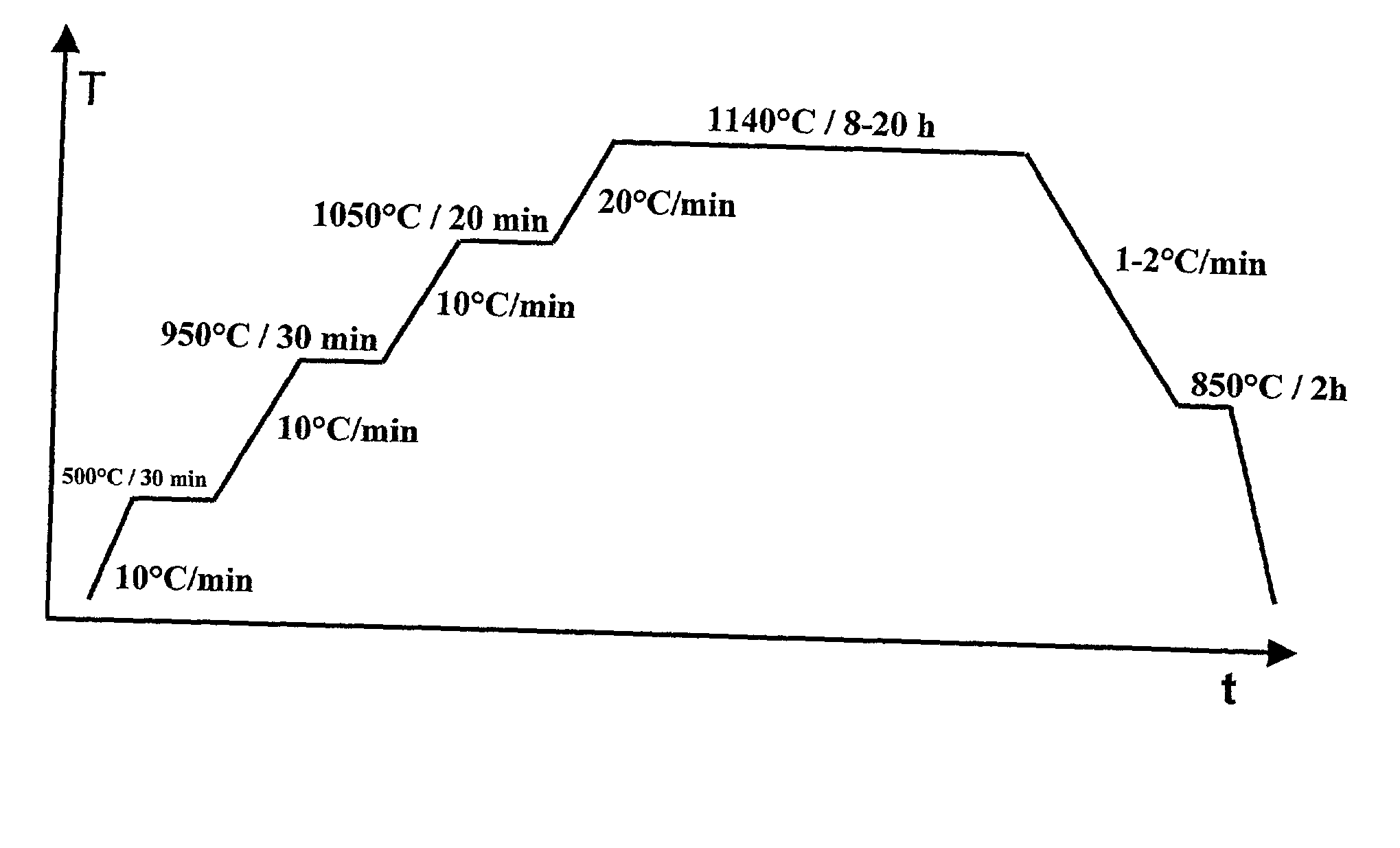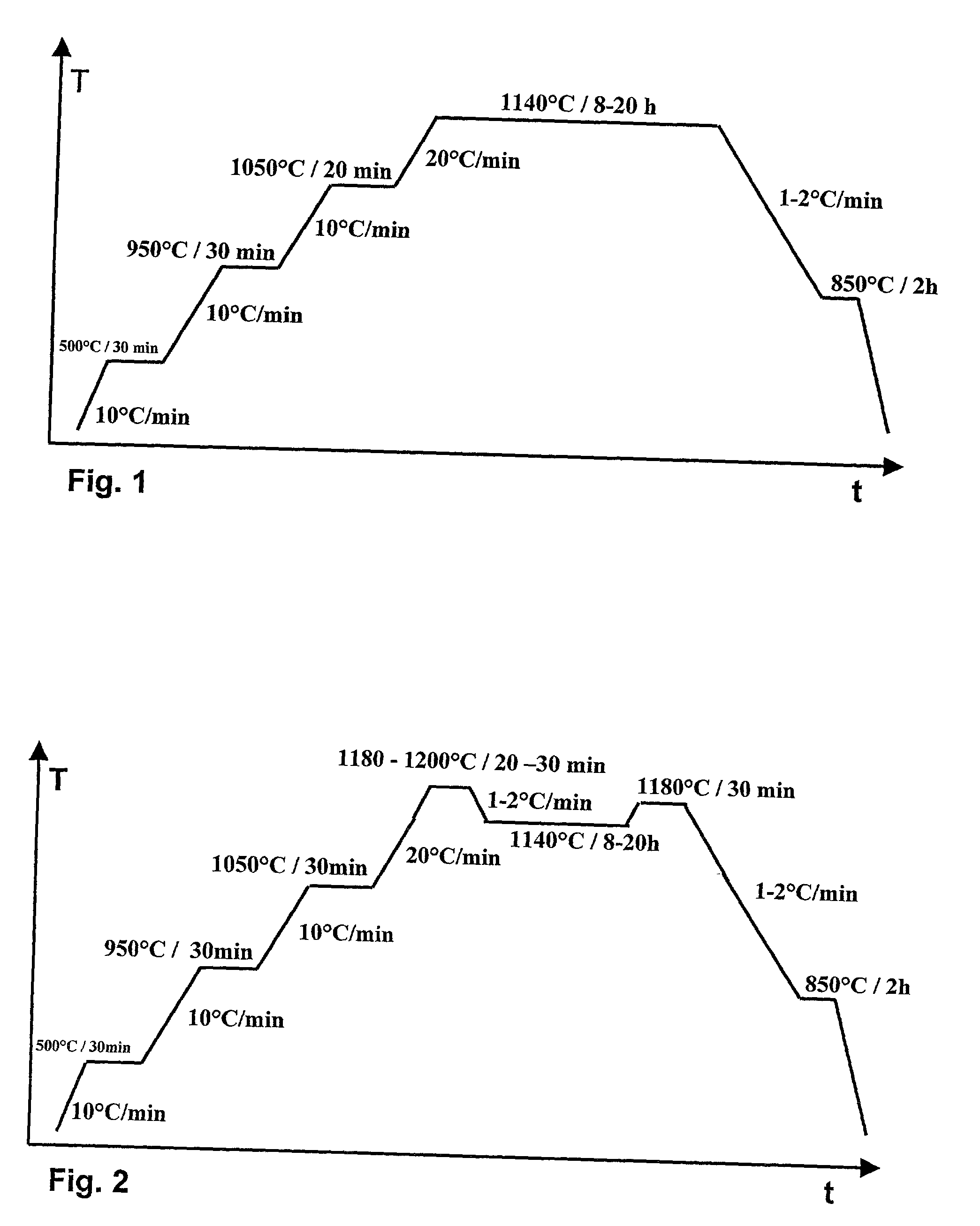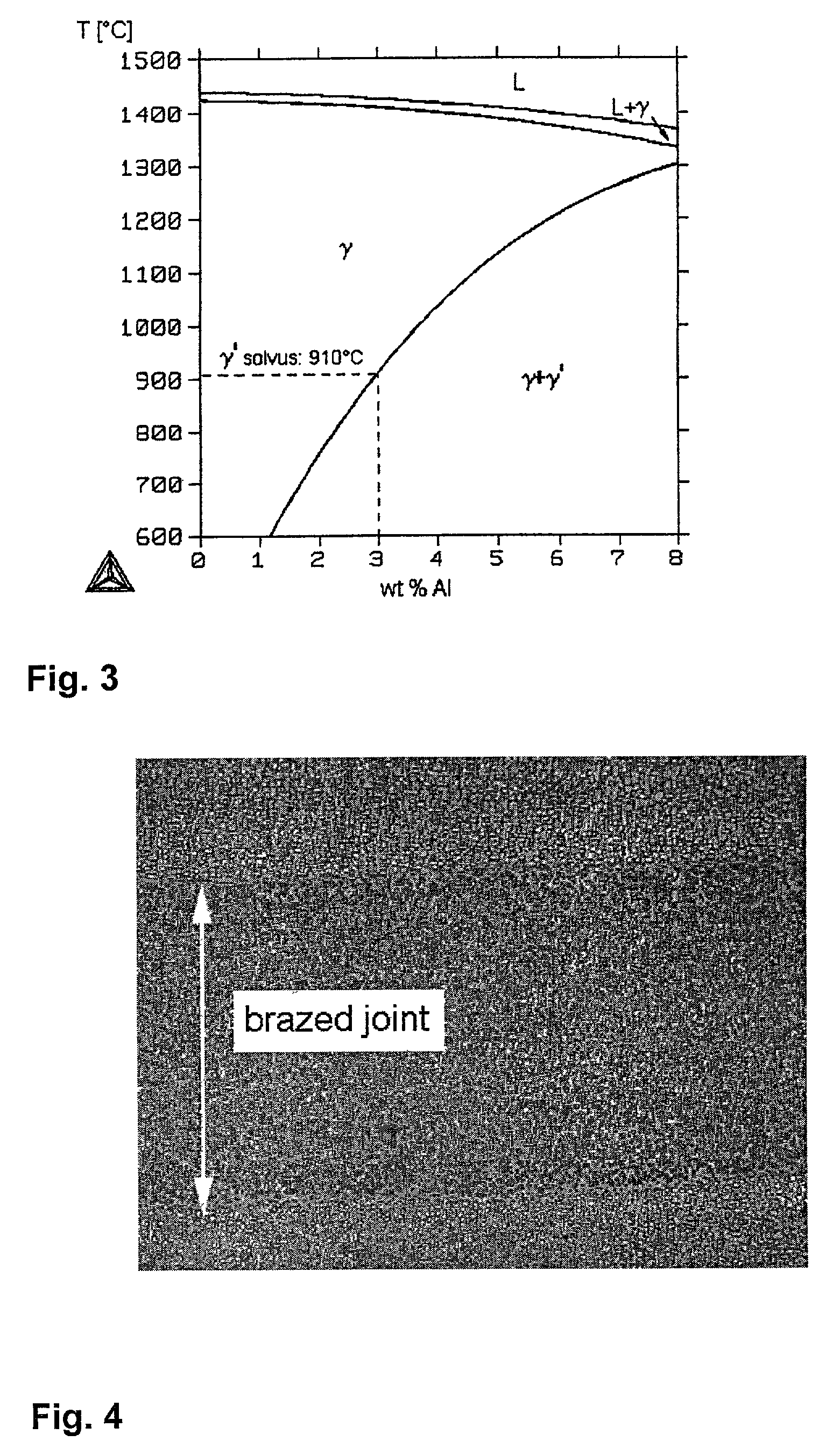Method for isothermal brazing of single crystal components
a single crystal, isothermal brazing technology, applied in the direction of blade accessories, crystal growth process, machine/engine, etc., can solve the problems of cracks and inclusions, thermal cycling and foreign object impact, and various types of damage during manufacture, so as to achieve high thermal fatigue resistance and low cycle fatigue value
- Summary
- Abstract
- Description
- Claims
- Application Information
AI Technical Summary
Benefits of technology
Problems solved by technology
Method used
Image
Examples
Embodiment Construction
[0022] The invention relates to a method of repairing cracks or gaps in a single crystal article made of a Nickel base superalloy by means of brazing. Nickel base superalloys are know in the state of the art, e.g. from the document U.S. Pat. Nos. 5,888,451, 5,759,301 or from U.S. Pat. No. 4,643,782, which is known as "CMSX-4". The single crystal article could possibly be a part of a gas turbine such as a blade and vane or a part of the burner chamber of the gas turbine. During service the article is subjected to the hot environment of the gas turbine which leads to the deleterious effect of cracks and gaps in the surface of the article.
[0023] Before applying the method of brazing as described below, a protective coating such as MCrAlY or thermal barrier coating (TBC), has to be removed by a process of acid stripping, grit blasting or mechanical grinding. At the same time this method also cleans the surface layer of the parent material from unwanted oxides. In addition, the surface o...
PUM
| Property | Measurement | Unit |
|---|---|---|
| Temperature | aaaaa | aaaaa |
| Time | aaaaa | aaaaa |
| Angle | aaaaa | aaaaa |
Abstract
Description
Claims
Application Information
 Login to View More
Login to View More - R&D
- Intellectual Property
- Life Sciences
- Materials
- Tech Scout
- Unparalleled Data Quality
- Higher Quality Content
- 60% Fewer Hallucinations
Browse by: Latest US Patents, China's latest patents, Technical Efficacy Thesaurus, Application Domain, Technology Topic, Popular Technical Reports.
© 2025 PatSnap. All rights reserved.Legal|Privacy policy|Modern Slavery Act Transparency Statement|Sitemap|About US| Contact US: help@patsnap.com



